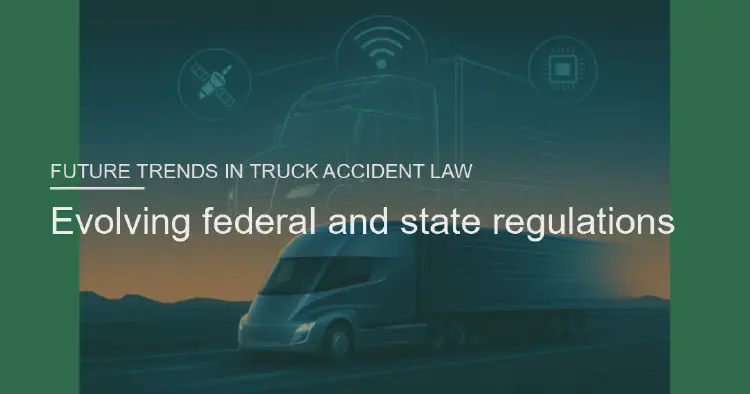
Evolving federal and state regulations
Trucking laws in the U.S. are shaped by both federal and state governments. As technology advances and safety concerns grow, regulations are evolving to address new challenges in the industry.

Trucking laws in the U.S. are shaped by both federal and state governments. As technology advances and safety concerns grow, regulations are evolving to address new challenges in the industry.
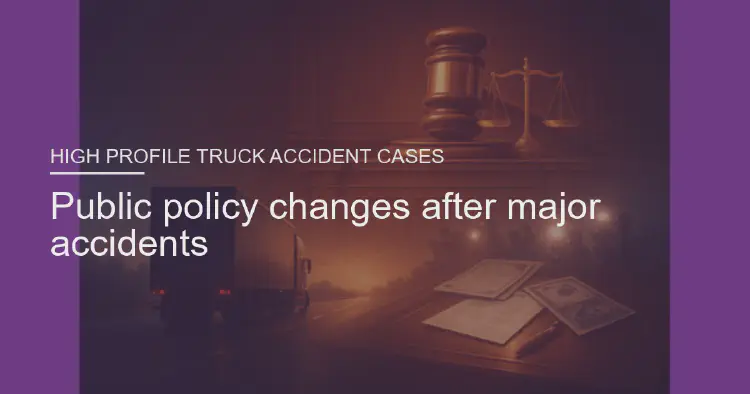
Major truck accidents often expose systemic weaknesses in safety enforcement, prompting lawmakers and regulators to enact policy changes aimed at preventing future tragedies.
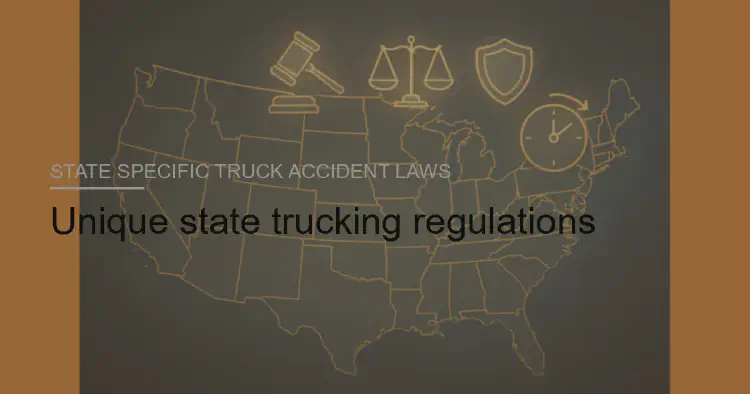
While federal rules under the FMCSA create a baseline for trucking operations, individual states impose additional regulations. These state-specific rules can significantly impact liability and compliance in truck accident cases.
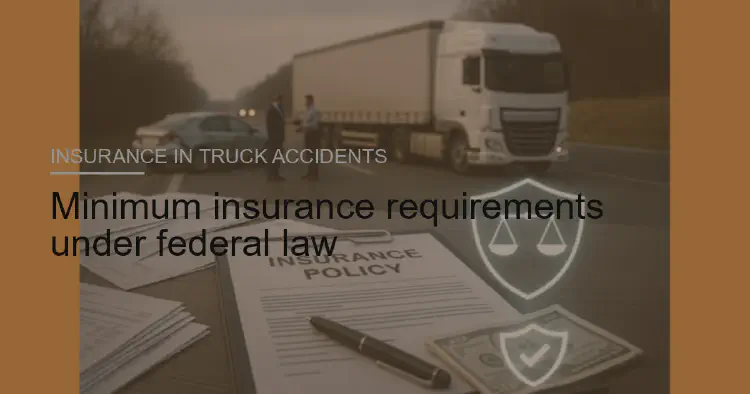
To ensure that victims of truck accidents can be compensated for damages, federal law mandates minimum levels of insurance coverage for all commercial carriers engaged in interstate commerce.
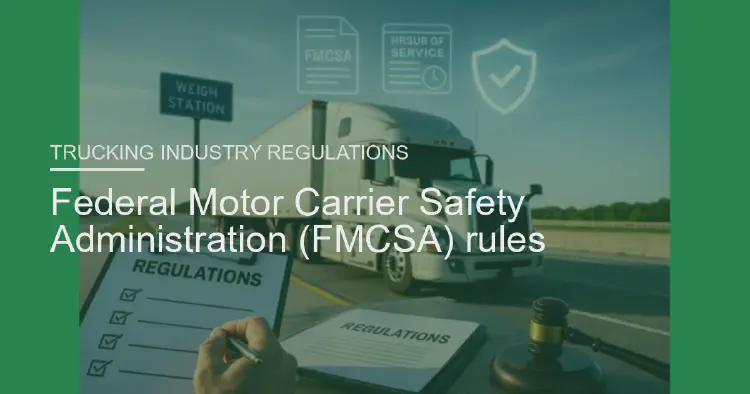
The Federal Motor Carrier Safety Administration (FMCSA) is the central authority for trucking regulation in the United States. Its rules are designed to reduce crashes, injuries, and fatalities involving large commercial vehicles.
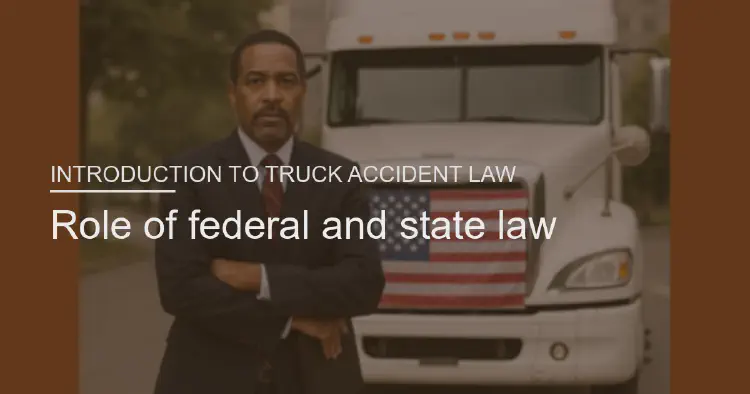
Truck accident cases in the United States operate within a dual legal framework shaped by both federal and state laws. Understanding how these layers interact is essential for determining liability and compliance.